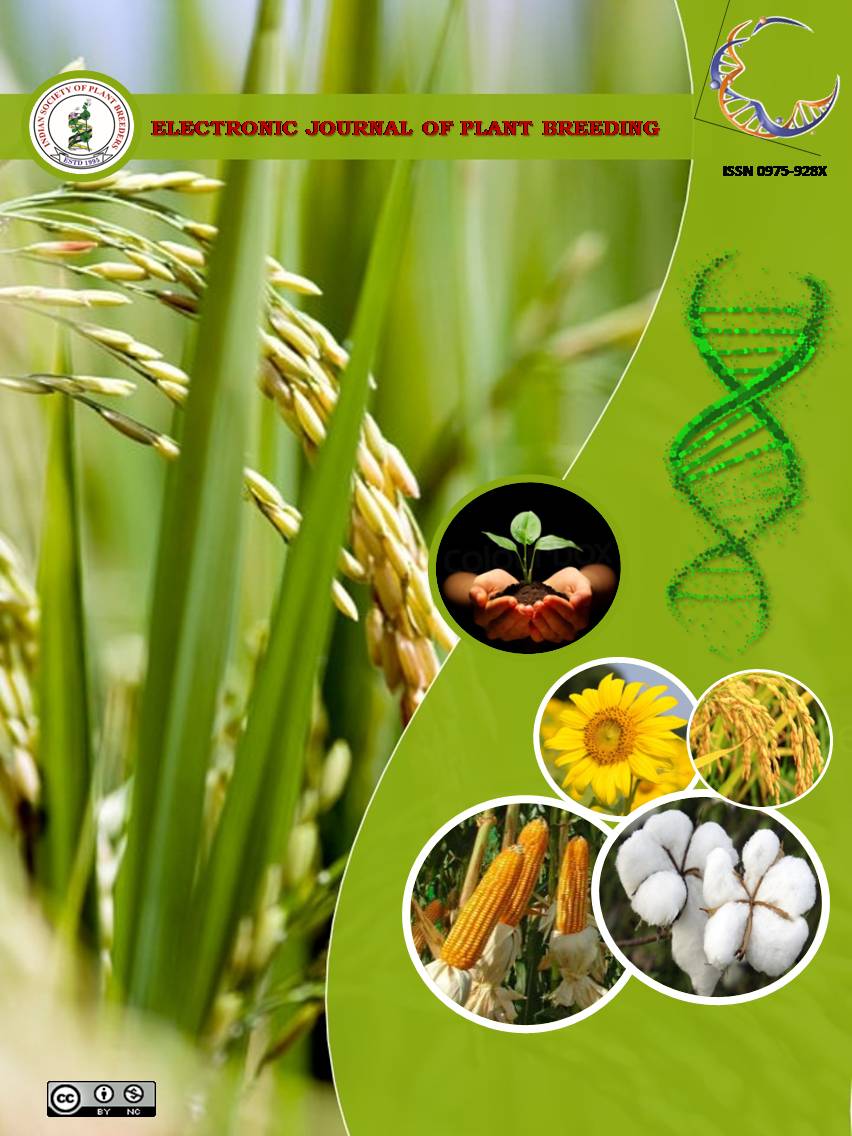Heterosis and combining ability studies for yield and its component traits in Maize (Zea mays L.)
Abstract
Heterosis and combining ability was studied in F1 hybrids of maize with respect to grain yield and yield attributing traits using twenty-two hybrids which were developed through Line × Tester mating design. The parents and their hybrids were subjected to assess the combining ability and nature of gene action governing the quantitative traits. The results inferred that the predominance of non-additive gene action was observed for all the traits. Among the parents, the overall study of gca effects suggested that parent UMI 1200-7-26-1-6-1, N 14, N 107 and N 285 were significant general combiner for yield, these can be used to improve hybrids with desirable traits in future. Significant positive SCA effects were found for all the studied traits. Among the hybrids, N 14 × UMI 1200-7-26-1-6-1 showed desirable standard heterosis percentage over the checks CO 6 and NK 6240 along with good sca effects and per se performance for grain yield and other important yield contributing traits over different locations thus it can be used for commercial seed production programme.

It is certified that:
- The corresponding author is fully responsible for any disputes arising due to the publication of his/her manuscript.
- The article has been seen by all the authors who are satisfied with its form and content.
- The sequence of names of authors in the by-line is as per their relative contribution to this experiment, giving due credit to all scientists who made notable contribution to it.
- All the authors fully understand that inclusion of any other co-authors or exclusion of any co-authors is not possible once the article has been submitted to the journal.
- The corresponding author takes full responsibility for this article.
- The address of the organization where the research was conducted is given.
- The article is exclusive for this journal, and the results reported here have not been sent (and will not be sent during its consideration by this journal) for publication in any other journal.
- Authors agree to abide by the objective comments of referees and do agree to modify the article into a short note as per the recommendation, for publication in the Electronic Journal of Plant Breeding.
- If published in Electronic Journal of Plant Breeding, the copyright of this article would vest with the Indian Society of Plant Breeders, who will have the right to enter into any agreement with any organization in India or abroad engaged in reprography, photocopying, storage and dissemination of information contained in it, and neither we nor our legal heirs will have any claims on royalty.


